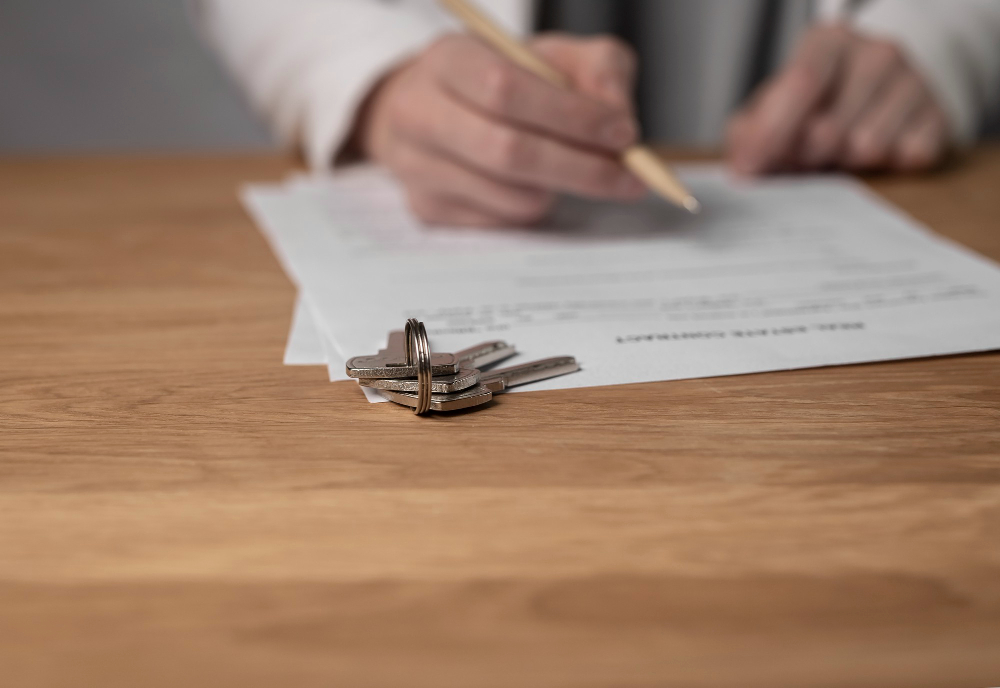Understanding the details of rental contracts is essential for a smooth experience when renting in Dubai. With its thriving real estate market, Dubai offers an extensive range of properties for rent, from modern apartments to luxurious villas. However, navigating rental contracts in Dubai requires expert guidance to ensure you have a full awareness of your rights, obligations, and the protections available. This guide provides a comprehensive breakdown of Dubai tenancy contract rules, covering key components, tenant and landlord responsibilities, and essential legal protections.
Key Components of a Dubai Rental Contract
A rental contract in Dubai is more than just a lease agreement, it’s a legally binding document that outlines the terms of your tenancy. It includes details about the property for rent in Dubai, your lease term, rental amount, security deposit, and specific clauses regarding property usage and maintenance. One critical aspect is understanding how rental payments are structured, whether monthly or annually, as many landlords in Dubai prefer post-dated checks for payment.
Other essential elements to look for in a Dubai rental contract include:
- Property Description: A clear description of the rental unit, such as its size, type, location, and included amenities.
- Duration of the Lease: Typically, lease terms in Dubai are for one year, although longer terms may be negotiated.
- Maintenance Responsibilities: Who handles what repairs and whether the landlord or tenant will be responsible for specific maintenance costs.
Rent Payment Terms and Security Deposits
One of the most notable aspects of rental contracts in Dubai is the payment structure. Dubai’s rental market often favors annual payments through post-dated checks, though some landlords may offer more flexible options like quarterly or bi-annual payments. Be sure your rental contract specifies the payment schedule and includes any details about late payment penalties.
In addition to rent payments, you’ll likely be required to pay a security deposit, which typically ranges from 5% to 10% of the annual rent for unfurnished apartments and can go higher for furnished properties. Security deposits are refundable at the end of the tenancy, provided there’s no damage beyond normal wear and tear.
Tenant and Landlord Responsibilities
Knowing your responsibilities as a tenant, along with what your landlord is responsible for, is critical. For tenants, obligations generally include keeping the rental property in good condition, using it only for the specified purpose, and respecting community rules. Landlords, meanwhile, must ensure the property is in a safe, habitable condition and handle major maintenance and repairs.
Your Dubai tenancy contract will detail which party is responsible for routine maintenance. Typically, minor repairs fall to tenants, while structural or significant repairs are the landlord’s duty. Clear expectations in the contract can help avoid disputes down the road.

Ejari Registration: What It Is and Why It Matters
Ejari, meaning “my rent” in Arabic, is a system regulated by the Dubai Land Department (DLD) that mandates the registration of all rental contracts. Registering with Ejari is vital as it makes your rental agreement legally enforceable and allows you to open utility accounts, obtain visas, and resolve disputes. Tenants are generally responsible for Ejari registration, which can be completed online or at an authorized center.
Renewal and Termination of Rental Contracts
Most leases in Dubai come with an automatic renewal clause unless one party provides advance notice to terminate. The notice period is usually 90 days before the lease’s expiration. Renewal terms should be negotiated and documented in your Ejari registration for full legal effect.
Termination terms are also essential to understand. If you or your landlord wants to end the contract early, ensure there are clauses in place detailing penalties, notice requirements, and acceptable reasons for early termination.
Rent Increase Rules and Tenant Protection
Rent increases in Dubai are regulated by the Real Estate Regulatory Authority (RERA), which sets clear guidelines for how much rent can be increased based on market rates. Landlords must adhere to RERA’s rental increase index, which helps protect tenants from excessive rent hikes. By law, any proposed rent increase must be communicated at least 90 days before the lease renewal.
Tenant Rights in Dubai
Dubai’s rental market is tenant-friendly, offering protections to ensure a fair leasing experience. Tenant rights in Dubai include the right to occupy a safe and well-maintained property, the right to privacy, and protection against arbitrary eviction or sudden rent increases. Additionally, tenants can take legal action if landlords fail to meet their contractual or maintenance obligations.
Dispute Resolution and Legal Recourse
Should a dispute arise, the Dubai Rental Dispute Settlement Centre (RDSC) provides a legal platform to resolve conflicts between tenants and landlords. Whether it’s related to rent increases, contract terms, or maintenance responsibilities, tenants can file a complaint with the RDSC to seek resolution. Legal recourse is available, though it’s always recommended to try resolving issues amicably with your landlord first.
Understanding the intricacies of rental contracts in Dubai helps you navigate the leasing process confidently. With clear rental terms, Ejari registration, tenant protections, and dispute resolution mechanisms, Dubai’s rental framework offers a balanced approach for both tenants and landlords. Whether you’re renting an apartment in Dubai for the first time or renewing your current lease, knowing your rights and responsibilities helps you avoid common pitfalls and enjoy a seamless rental experience.
For expert guidance and to explore the best properties for rent in Dubai, get in touch with Luxfolio today.


